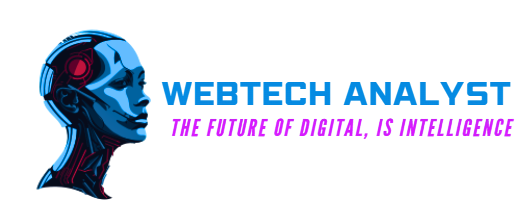- August 20, 2025
- By Web Tech Analyst
- 290
- Web Development
Government Policies Influencing Data Privacy in Web and SaaS Technologies

In today’s digital-first world, data privacy in web and SaaS technologies has become one of the most pressing concerns for businesses and users alike. With the massive adoption of cloud platforms, SaaS applications, and online services, governments across the globe are stepping in to regulate how data is collected, stored, and shared.
For tech companies, startups, and SaaS providers, understanding these government policies influencing data privacy in web and SaaS technologies is critical for compliance, customer trust, and global competitiveness.
1. The Global Push for Stronger Data Privacy in Web Laws
As the digital economy grows, so does the volume of sensitive user data being exchanged online. Governments are introducing stricter regulations to hold businesses accountable and empower users with greater control over their information.
These policies are no longer regional; they are influencing global web and SaaS practices. For companies serving international clients, compliance with multiple regulatory frameworks has become the new standard.
2. GDPR: The Benchmark for Global Privacy
The General Data Protection Regulation (GDPR) introduced by the European Union remains the most comprehensive data privacy in web law to date. It requires organizations to:
-
Obtain explicit user consent before collecting data.
-
Provide clear transparency on how data is used.
-
Allow users to access, modify, or delete their information.
For SaaS providers and web platforms, GDPR compliance realted to Privacy in Web is not optional if serving EU customers. Even companies outside the EU must adhere to GDPR standards if they handle European user data.
3. CCPA and CPRA: Shaping Privacy in the U.S.
In the United States, California Consumer Privacy Act (CCPA) and its updated version, the California Privacy Rights Act (CPRA), have set the tone for state-level privacy regulations.
Key requirements for web and SaaS companies include:
-
Allowing consumers to opt-out of data sharing.
-
Offering transparency on third-party data usage.
-
Providing rights for users to request deletion of personal information.
With other states following California’s lead, SaaS providers operating in the U.S. must prepare for a patchwork of privacy laws.
4. Canada’s Digital Charter & Privacy Act Updates
Canada has modernized its data privacy framework through Bill C-27 (Digital Charter Implementation Act, 2025), introducing the Consumer Privacy Protection Act (CPPA).
For SaaS technologies, this means:
-
Stronger data protection standards.
-
Mandatory breach notifications.
-
Heavy penalties for non-compliance.
This aligns Canadian policies closer to GDPR, ensuring interoperability for global SaaS providers serving Canadian users.
5. India’s Digital Personal Data Protection Act (DPDP Act, 2023)
India’s rapidly growing SaaS industry must now comply with the DPDP Act, which emphasizes on Privacy in Web:
-
Lawful and transparent data processing.
-
Data localization requirements for sensitive categories.
-
Stronger penalties for misuse of personal information.
This has global implications, as many SaaS providers outsource services or operate development teams in India.
6. Cloud Security & SaaS Compliance Requirements
Government policies are not just about user consent—they also focus on cloud security, cross-border data transfers, and vendor accountability.
Web and SaaS providers must implement:
-
Encryption & secure storage for sensitive data.
-
Vendor risk assessments when working with third-party tools.
-
Regular audits and certifications (ISO 27001, SOC 2, etc.) to meet compliance standards.
7. Future Outlook: AI and Data Privacy in Web in 2026 and Beyond
As AI-driven SaaS platforms continue to evolve, governments are drafting policies around AI ethics, algorithm transparency, and responsible data use. In the next few years, we can expect:
-
Stricter rules on biometric and health-related data.
-
Global harmonization of privacy standards for SaaS platforms.
-
Heavier enforcement of cross-border data transfer regulations.
Why Data Privacy Compliance Matters for Web and SaaS Providers
-
Customer Trust: Users are more likely to choose SaaS platforms that are transparent about data use.
-
Global Market Access: Compliance with GDPR, CPRA, or India’s DPDP Act ensures international scalability.
-
Risk Management: Avoid heavy fines and reputational damage from privacy violations.
Conclusion
Government policies influencing data privacy in web and SaaS technologies are shaping the future of the digital economy. From GDPR in Europe to the DPDP Act in India, the message is clear: privacy is no longer optional—it is mandatory.
For SaaS providers, startups, and tech businesses, aligning with these evolving policies not only ensures compliance but also builds a foundation of trust with users. In an era where data is the new currency, respecting privacy is the key to sustainable growth.
Related
Tags:
